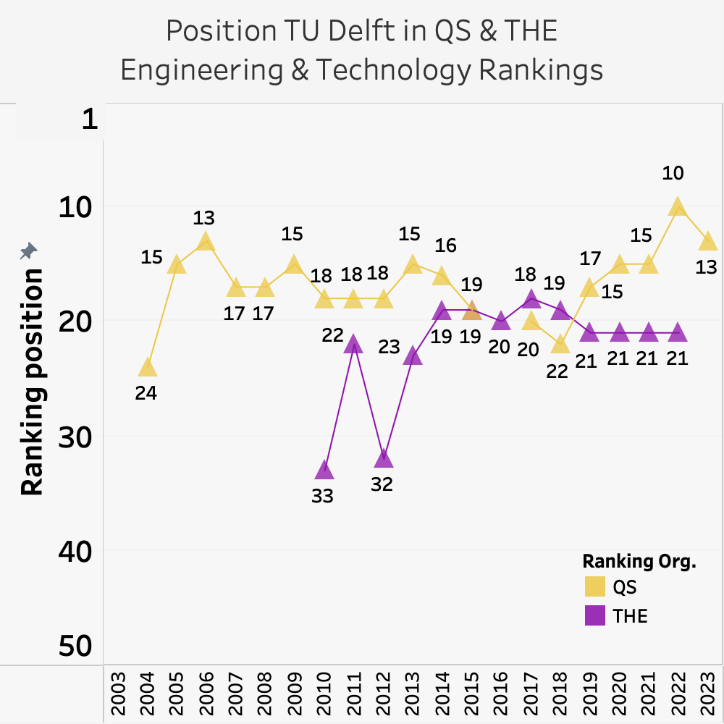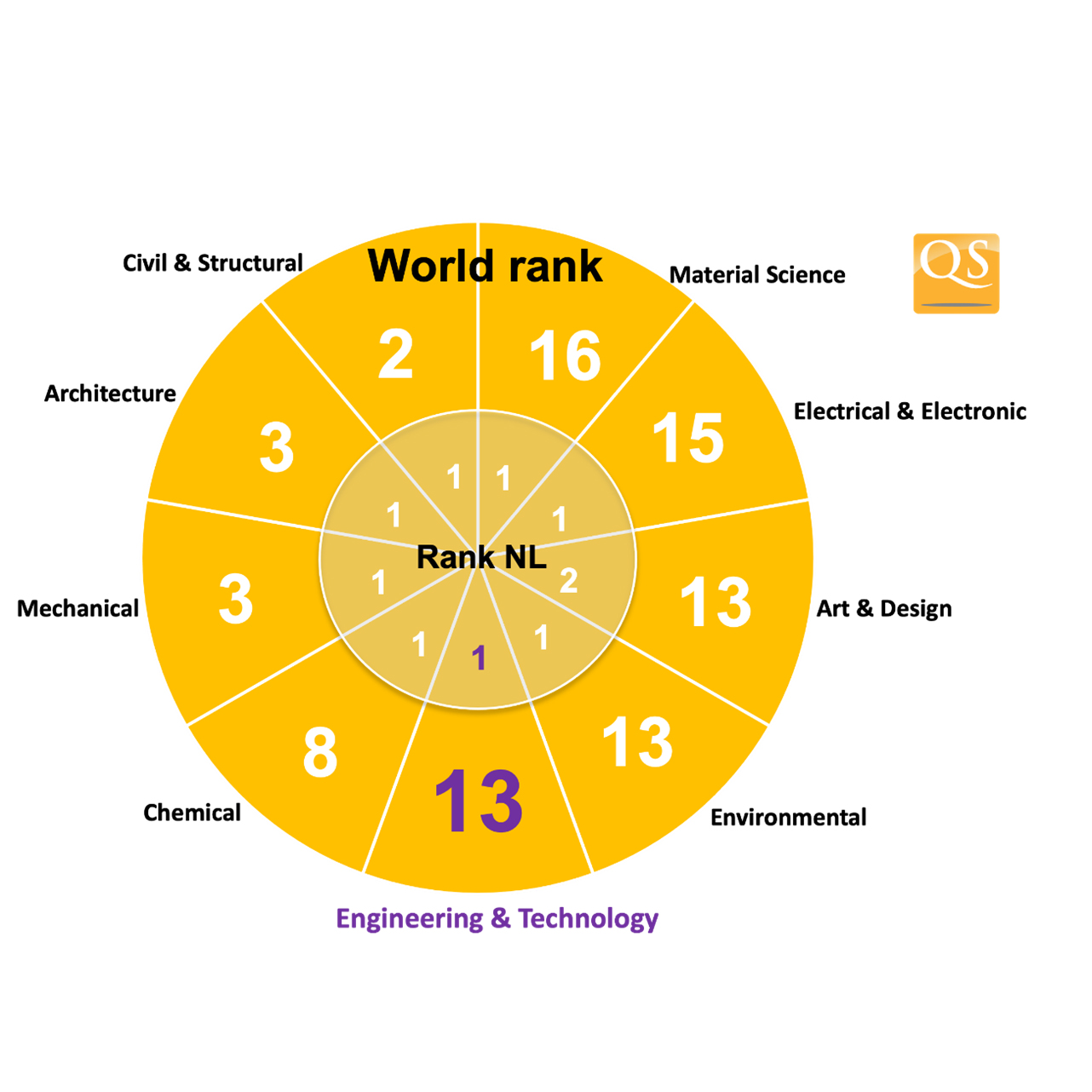TU Delft retains position in top 15 of world QS Engineering & Technology Ranking
TU Delft is ranked 13th for Engineering & Technology in the QS World University Rankings by Subject published on 22 March 2023. TU Delft also made the top 20 in nine of its specialisations.
For many years now, TU Delft has been ranked among or near the top 20 Engineering & Technology universities in the world in both the QS ranking and the Times Higher Education (THE) ranking. The Engineering & Technology ranking is the most relevant for TU Delft, because this category applies to the entire university. Moreover, this subject ranking compares universities with a similar focus, in contrast with the World University Ranking, which compares all universities.
Equivalent or higher positions in the QS Subject Rankings
TU Delft is ranked among the world’s very best universities in Civil & Structural Engineering (2), Architecture (3) and Mechanical Engineering (3) and Chemical Engineering (8). The University is also among the top 20 for Art & Design, Engineering & Technology, Electrical & Electronic engineering, Environmental Sciences and Material Sciences. TU Delft achieved no less than 16 top-50 rankings in total.
QS World University Rankings by Subject
In addition to the annual World University Ranking, QS issues separate Subject Rankings. This year, 1594 universities were ranked in 54 specialisations. The subjects are divided into five faculty areas (broader fields of specialisation). TU Delft was ranked 26 times: in all five faculty areas and in 21 subjects. Three new subject rankings were published this year: Data Science and Artificial Intelligence, Marketing and History of Arts. The first is relevant for TU Delft. Although TU Delft achieved quite a lot of points for the indicators in this subject, the University did not make this subject ranking this year. QS has published only the top 20 universities in this field for this first edition.
Methodology
The indicators that these rankings are based on are: academic reputation, employer reputation, citations per paper, the H-index and the IRN indicator that was included for the first time last year (for the broader fields of specialisation). IRN stands for International Research Network and measures the degree of international diversity in research collaborations. The indicators are weighted differently depending on the subject.


